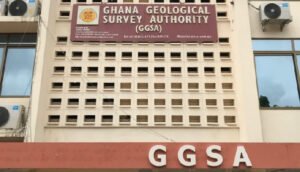
Henry Quartey
It has been weeks since the rains started. Before the season, we saw for the first time, since the last two decades, our local government chiefs coming down from the comfort of their seats to tidy up the streets and urban highways as well as markets and neighbourhoods. They did that as part of efforts to ensure that the annual ritual of tragedy that accompanies the rains is roundly confronted.
From Tamale and Kumasi through the Central and Western regions to the Central Business District of Accra, assembly staff followed their leaders into the areas to tackle the issues that breed tragedy. They carried out activities such as removing unauthorised structures, clearing debris from choked gutters, clearing squatters from public spaces, among others.
Sanitised Accra
In Accra, for instance, where we usually find the Odaw River overflowing and spilling excess water onto streets and lanes and adjoining neighbourhoods, resulting in calamities, particularly in slum areas of the CBD of Accra, the Greater Regional Minister, Henry Quartey, is leading a task force whose work has reverberated with success.
Again, along the Kaneshie Market area, the usual signs of flooding along streets that creates traffic into Agbogbloshie and Kaneshie Circle, Adabraka and Asylum Down, further releasing piles of rubbish from Odorkor and Kwashieman onto the precincts of the market, are no longer visible as it was previously.
Though we are yet to have more and more rains, according to the Meteorological Service Department, we have enough signals to be rest assured that the embarrassing levels of flooding we have been used to could become history as Accra, Kumasi, Takoradi and Cape Coast works again.
Effective engagement
The success story, of course, cannot be told in refreshing terms without commending the respective informal economy actors on our markets who, together with the state actors in our local government outfits, have worked harder to improve sanitation on markets and along the adjoining streets.
It is evident that, under the current administration, measures including timely dredging of the Odaw River and removal of offending, illegal temporary shops, among others, are being effectively coordinated to achieve the desirable results.
Thankfully, such exercises have also been conducted without too much acrimony, having been preceded by engagement sessions in which non-state actors were educated on the issues.
Baseless threats
Unfortunately, we have had a section of these informal economy actors standing in the way of development and the larger convenience of our people who are affected by the actions and inactions of our brothers and sisters who love to operate just anywhere.
We don’t understand what “lawful rights” these informal economy people refer to, when they forcefully demand space anywhere to operate, with threats to assembly officials and government, for that matter, in lurid terms.
‘Right’ to misbehave?
As these ‘resistance’ elements may have been made aware, democracy does not mean a right to misbehave or act lawless. It does not also mean people can ignore existing planning arrangements to engage in economic activity anywhere.
While we appreciate the contribution of the informal sector to our national development effort, it should be made clear to players in that sector that they have to operate within the bye-laws of the assemblies in the same manner that their counterparts in other sectors operate.
No government thrives on lawlessness. Being Ghanaian requires that we keep our market places and streets as well as drains and other public amenities clean.
Moreover, it requires that we act responsibly in eking out our livelihoods such that other citizens do not suffer jeopardy by our selfish, uncontrolled activities.
It is the hope and prayer of the Daily Statesman that our local government chiefs would not go back to sleep, after this initial success.
Together, we must sustain the tempo as much as the gains, in keeping cities perpetually clean and tidy.







